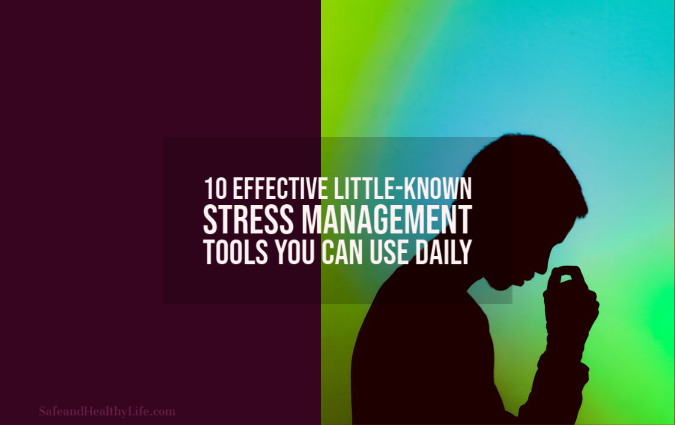
Stress and anxiety are common experiences.
According to the American Institute of Stress, 77% and 73% of adults in the US experience physical and psychological symptoms caused by stress respectively.
It ranges from little annoyances such as traffic jams to worries about work requirements, family responsibilities, and money to the grave illness of a loved one.
Whatever the cause may be, it leaves stress flooding your body with cortisol, which contributes to weight gain.
It makes your heart pound, speeds up your breathing speeds, and makes your muscles tense.
Unfortunately, most of the sources of modern-day stress can’t be avoided. However, you can develop healthier ways to respond to them. This is where relaxation comes in.
Relaxation isn’t just about enjoying a hobby or finding peace of mind. It helps you minimize the effects of stress on your body and mind. All forms of relaxation practices have a similar goal; to produce the natural relaxation response of the body.
Their characteristics include lower blood pressure, slower breathing, and a feeling of elevated well-being. This offers great value for stress management; managing different health issues, minimizing your stress symptoms, and improving your life quality.
Below are ways you can relax and relieve yourself whenever you feel you need it:
1. Prepare For Tomorrow
Being unprepared is stressful on its own. Getting organized helps you prepare well for the next day. Create a to-do list and prioritize your tasks. Knowing that you have got everything covered gives you the feeling of being in control well enough to handle the situation.
With this, you have set a positive tone for the day and to will be able to avoid being disorganized. Not planning ahead makes you operate without foresight. This results in frazzled nerves and lost time.
2. Sleep Better
Adults need 7-8 hours of sleep every night to operate efficiently but most of us take this for granted. Sleep is a great way to relax. Most people find it hard to get enough of this.
Some things might be affecting your sleep without you knowing it. Make your bedroom comfortable for sleep. Late-night TV and too many bright lights in your bedroom won’t make you sleep on time but only give you restless nights.
Avoid reading or eating and other activities not suitable for the bedroom. The bedroom is designed only for sleeping. Keep yours that way.
3. Get Yourself Soaked
According to a report gathered from a new study from the Japan Health and Research Center, Tokyo City University, getting soaked in a bathtub or skin detox solution or just floating in water gives some physical and mental health.
These trigger the relaxation response of the body. Bathing relieves skin conditions, improves mood, eases muscle pains, and helps you to sleep better. This further helps to reduce the levels of the stress hormone (cortisol) in the body.
4. Smile and LOL
Anxiety annihilates our sense of humor. You can’t get immersed in a giggle and still feel stressed. According to results from past studies, smiling produces psychological and physiological benefits.
Laughter helps to improve the function of the immune system and relieves tension. You can rent a funny movie or swap jokes with a few friends of yours; you don’t have to be too serious all the time.
5. Video Games
Boosting your mood with mobile video games is another terrific way to relax and relieve yourself of stress. It might sound ridiculous, but mobile-phone video games have a unique way of relaxing people. Video games are one of the easiest activities anybody within any age group can learn.
In a 2004 study at the University College in London, Researchers Anna L. Cox and Emily Collins confirmed that video games reduce depression. So did the researchers at the National Institute on Aging.
Besides, there is no better way to boost your mood than finally figuring out a difficult level or successfully completing a game. Online video games really have fundamental emotional benefits to users.
6. While In Traffic…
While you get stuck in a traffic jam, quickly engage in this exercise. Hold on tight to your steering wheel and clench the muscles in your arms, fingers, back, and shoulder.
Continue with this until you can feel that your muscles have started trembling, and then release this.
This could be for a period of 45-50 seconds. A wave of relief would be created in your upper arms and neck, down to your fingers. However, be sure that you have your foot on the brakes when you release the wheel.
7. Turn On Some Tunes
Music is a great way to relax. Recently, a study reveals that music helps to improve sleep quality, and researchers at Stanford University discovered that listening to music has the same effect on brain function as certain medications.
Other studies have also proved that meditative or slow music is a stress buster. So, set your dial to a soothing station whenever you commute. Or find a secluded, quiet place after the day’s work, use your headphones, and play yourself some relaxing music.
We all have individual preferences when it comes to music. However, soundscapes are generally known to be very relaxing and so are highly recommended for everyone.
8. Breathing Exercise
Everybody breathes, but not in ways suitable for relaxation. Breathing becomes more obvious usually when we are in a stressful situation.
Such a situation makes you lose your focus. Somehow, you experience quicker breathing, faster heartbeat, and constricted blood vessels.
Next time you feel like this, manage your breathing. Breathe through your diaphragm, not your chest. Sit comfortably and focus on your breathing. Bring your attention and mind to the present moment and avoid drifting into your concerns for the past or the future.
Doing this will help you activate your parasympathetic nervous system. It is responsible for controlling the relaxation response. This helps with pain, anxiety, and depression.
9. Talk To a Diary
Keep a stress diary. Write down the things that prey on you. This is similar to the benefits you get from talking about them in a support group or discussing them with friends.
It helps you feel less helpless and alone. Keeping a stress diary will help you to be more aware of your stressors or situations that make you experience stress.
Go over the date, place, and time of the stressful episodes; what you did, who you were with, and your emotional or physical feelings at that moment.
This will help you identify stress triggers and come up with a plan to avoid them or develop better mechanisms to cope with them.
10. Adopt A Pet
Having and spending time with your pet may help you improve your mood and reduce stress. According to this study, interaction with pets releases oxytocin. Oxytocin is a brain chemical that promotes a positive mood.
Having a pet, such as a dog, has been proven to provide companionship, keep people active, and help them have a sense of purpose.
Take Away
Whenever you experience physical warnings of stress such as low self-esteem, feeling overwhelmed, anxiety, depression, irritability, muscle tension, or loss of sex drive, try to make the connection; the connection between these symptoms and whatever pressures you are faced with.
Identify the reasons or causes into 3 categories; the issue with a practical solution, the ones that get better with time, and those you can’t control. Release the worries concerning the first and second categories and learn to let go of the others in the third group.
Then, review your lifestyle; are you taking on too much or are there tasks that you can delegate?
Are there things you could do in a leisurely way too?
Answering these questions and providing answers to them will help you let go of the pressure of doing everything at once.
Finally…
Often times we relate relaxation with “time-wasting,” but stress management and regular relaxation are important for emotional and physical health. The stress response of your body usually gets triggered all through the day. Your body needs to return to its regular relaxation state afterward.
Not doing this could result in a state of chronic stress for you, which can wreak serious havoc on your health.
Stress-related health problems like high blood pressure, common cold, and heart disease.
This can occur while you are sitting but what is important is having a structured plan for your relaxation. It is a more effective help in the face of stress.
About The Author:
This is Christina; a fitness lover, reader, and full-time writer. She’s currently one of the editors at DetoxifyTips.com. When she’s not watching a movie or hanging out with friends, she’s probably researching new ways to actualize her goal of helping you to commit to fitness.




